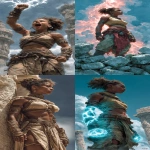Explore the Best AI Image Gallery

Blockchain in Finance: Redefining the Creative Landscape
The world of finance is undergoing a radical transformation, driven by the advent of blockchain technology. Its decentralized, transparent, and secure nature has sparked immense interest across various sectors, including the creative industry. This blog post delves into the burgeoning intersection of blockchain and finance, exploring its transformative impact on artists, musicians, designers, and content creators.
Empowering Creators Through Decentralized Platforms
Blockchain technology empowers creators by providing them with decentralized platforms to showcase their work, connect with audiences, and monetize their creations directly. Smart contracts, self-executing agreements coded onto the blockchain, automate royalty payments, ensuring fair compensation for artists and simplifying complex licensing agreements.
NFTs: Revolutionizing Art Ownership and Authenticity
Non-fungible tokens (NFTs) have emerged as a groundbreaking innovation, revolutionizing the way we perceive and interact with digital art. NFTs represent unique digital assets, such as artwork, music, or collectibles, on the blockchain, providing verifiable ownership and authenticity. This has opened up new avenues for artists to sell their work directly to collectors, bypassing traditional intermediaries and gaining greater control over their creations.
Tokenized Crowdfunding: Funding Creative Projects with Blockchain
Blockchain-based crowdfunding platforms enable creators to raise funds for their projects from a wider pool of supporters. Tokenization allows backers to invest in creative endeavors by purchasing tokens that represent ownership or access rights. This model fosters transparency, accountability, and community engagement, empowering creators to bring their visions to life.
Beyond Art: Applications in Music, Design, and Publishing
The impact of blockchain extends beyond the realm of visual art. Musicians can utilize blockchain to distribute their music directly to fans, eliminating intermediaries and ensuring fair compensation. Designers can create and sell unique digital designs as NFTs, while publishers can leverage blockchain to protect intellectual property rights and streamline content distribution.
Ethical Considerations: Navigating the Uncharted Waters
As with any emerging technology, blockchain in finance presents ethical challenges that require careful consideration. Issues surrounding data privacy, security vulnerabilities, environmental impact, and the potential for manipulation need to be addressed proactively.
Addressing Concerns Through Transparency and Regulation
Transparency is paramount in blockchain systems. Open-source code and public ledgers allow for scrutiny and accountability. Regulatory frameworks can help mitigate risks, protect consumers, and ensure ethical practices within the blockchain ecosystem.
Future Trends: A Glimpse into the Blockchain-Powered Creative Landscape
The future of the creative industry is inextricably linked to blockchain technology. We can anticipate:
- Increased adoption of NFTs for diverse applications, from gaming assets to virtual real estate.
- Emergence of decentralized autonomous organizations (DAOs) that govern creative projects and allocate resources fairly.
- Integration of blockchain with augmented reality (AR) and virtual reality (VR) experiences, creating immersive and interactive content.
- Development of novel blockchain-based platforms that foster collaboration and empower creators globally.
Conclusion
Blockchain technology is poised to revolutionize the creative industry, empowering artists, fostering transparency, and unlocking new avenues for innovation. By embracing its potential while addressing ethical considerations, we can shape a future where creativity flourishes in a decentralized and equitable digital landscape.




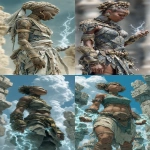





](https://images.ai-img.art/thumbnails/150/00df9b84a8818b4130bce9ca10c0c67ff2bc8952ca0fb5012dafc9b1c6378e67.webp)
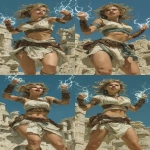
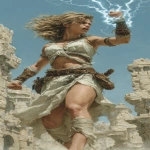
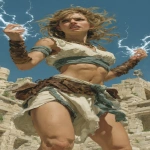


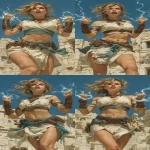




](https://images.ai-img.art/thumbnails/150/33a7122c923d87ba243a3afa0b16a930f1603be27b8ac938ff7f4ae4f5140553.webp)

](https://images.ai-img.art/thumbnails/150/8aa2589b60ffe3dde30a265a6cac8d4ae71901c658ca48c4344f21436de413fb.webp)










](https://images.ai-img.art/thumbnails/150/bc5b40f43007c984885fc5b035e0fd81d75554a8730895e067565a6b7050524b.webp)



](https://images.ai-img.art/thumbnails/150/39c6bd41a1282b304a06fb11053bd009750b3879060719b1adb959228dbcd41a.webp)


